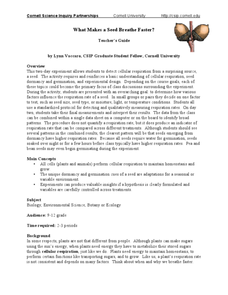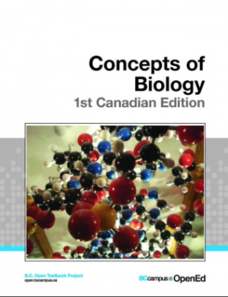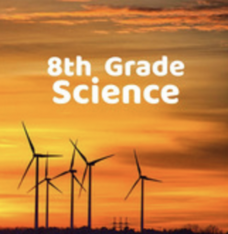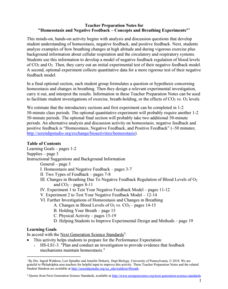Serendip
Photosynthesis Investigation
Can scientists increase the rate of photosynthesis to help clean the air? Scholars complete an experiment determining net photosynthesis. Then, they apply knowledge from the activity to design their own investigations of the factors that...
Virginia Department of Education
Photosynthesis and Cellular Respiration
Provide high schoolers with their own indoor gardens! Emerging scientists discuss the process of photosynthesis and germinate seeds before growing plants in multiple lighting conditions. The hands-on application allows pupils to see...
Curated OER
Alcoholic Fermentation in Yeast
Biology classes will bubble with excitement as they complete this assignment. Beginning with an informative overview of cellular respiration and fermentation processes, the highlight comes as an experiment in determining the rate of...
Curated OER
Regents High School Examination: Living Environment 2009
Emerging ecologists need a full understanding of life, from the inner workings of a cell to the complex relationships among organisms. This examination is meant to assess high schoolers after an entire year course on the living...
Curated OER
Regents High School Examination: Living Environment 2007
Environmental science enthusiasts show what they know at the end of the year by taking this full-fledged final exam. They answer multiple choice, graph interpretation, and essay analysys questions, 73 of them in all. Topics range from...
Curated OER
What Makes a Seed Breathe Faster?
Here's a five-star lesson plan in which inquisitors conduct sophisticated experimentation with cellular respiration in plant seeds. Placing seeds in a closed system they measure the amount carbon dioxide produced and relate it to...
Biology Junction
Bioenergetics
Bioenergetics strives to describe how living things gain and transform energy for biological purposes. First, pupils learn about the types of energy before exploring the importance of energy in biological processes. Next, they discover...
Serendip
Using Models to Understand Cellular Respiration
Energize biologists with colorful images in an activity that captivates the imagination while demystifying the subject of cellular respiration. Participants build comprehension skills and access core content knowledge by analyzing text...
College Board
2013 AP® Biology Free-Response Questions
AP® free-response questions are often challenging for scholars. Give them practice writing free-response questions using former questions from the AP® Biology exam on topics such as genetic mutations, cellular respiration, evolution, and...
BC Open Textbooks
Concepts of Biology – 1st Canadian Edition
How diverse are living things? Individuals explore topics such as cells as the foundation for life, cell division and genetics, molecular biology, and animal reproduction using an open resource Biology textbook. They learn key terms...
Utah Education Network (UEN)
Utah Open Textbook: 8th Grade Science
The cycle of energy is important to many different systems on Earth. Scholars use questioning and observation to investigate the differences between renewable and non-renewable resources and how they relate to global changes. They...
Science Matters
Post- Assessment: Transport Systems in Animals and Plants
A little bit of this and a little bit of that. The final lesson of the 21-part unit assesses learners on each animal and plant system. The test covers the basics of each system and focuses on key vocabulary from the unit.
Science Matters
Formative Assessment #6: Photosynthesis Cellular Respiration
You know you taught it, but did they learn it!?! A quick formative assessment asks pupils to describe both photosynthesis and cellular respiration before showing how they relate to each other. The lesson marks the 20th lesson in a...
Science Matters
Photosynthesis-Cellular Respiration Cycle
The balance of nature can be a wondrous thing! With the 19th lesson of the 21-part series on systems, learners explore the cycle of photosynthesis and cellular respiration using a lab-based activity. Groups set up different test tubes...
College Board
2015 AP® Biology Free-Response Questions
Many future doctors earn college science credit by passing the AP biology test while still in high school. Help young scientists prepare for the exam by studying past test questions. Each of the eight questions covers multiple topics...
Serendip
Food Webs, Energy Flow, Carbon Cycle, and Trophic Pyramids
The reintroduction of a species to an area doesn't always go as expected. Scholars learn about the reintroduction of wolves into Yellowstone National Park with a video, reading, and discussion questions. They complete a hands-on activity...
Serendip
Homeostasis and Negative Feedback – Concepts and Breathing Experiments
More asthma attacks happen at higher altitudes, but why? Scholars complete worksheets, learning about homeostasis and feedback related to breathing. Then, they work in small groups to experiment with breathing in limited amounts of...
Open Oregon Educational Resources
General Biology I: Survey of Cellular Biology (Mt Hood Community College Biology 101)
From the scientific method to the function of a cell, the eBook has it all. A useful resource provides a free biology textbook with a focus on context. The text begins with an overview of the process of scientific inquiry and biology...
Biology Junction
Energy Flow Through an Ecosystem: Food Chains, Food Webs, and Energy Pyramids
When a minnow eats a piece of plastic, that garbage often tracks through multiple animals, causing harm to each as it passes through the food chain. Scholars learn about food chains, food webs, and energy pyramids with a presentation. It...
Serendip
Should You Drink Sports Drinks? When? Why?
New research proves even rinsing your mouth with carbohydrates without swallowing improves performance of the central nervous system. While some think sports drinks are amazing, others say they are a waste of money. Scholars learn about...
Howard Hughes Medical Institute
How Did Dinosaurs Regulate Their Body Temperature?
Are dinosaurs more like birds or reptiles? Learners put the question to the test by analyzing body temperature data from a 2014 study. With their analysis, they develop a theory about the body temperature regulation of dinosaurs.
Biology Junction
ADP, ATP, and Cellular Respiration
Hans Krebs won the Nobel Prize for his discovery of what scientists now know as the Krebs cycle. Named after him, the Krebs cycle exists as only one system of the larger set, working together to keep human bodies functioning. The...
Biology Junction
Cellular Respiration
Which food molecules must be present for cellular respiration to occur? Scholars view an informative presentation to better understand the process of cellular respiration. It details each step, focusing on the locations and the four main...
Biology in Motion
Organize-It
Many pupils struggle to categorize and organize related content. Multiple quizzes on a variety of topics offer practice for these specific skills. Scholars move items around until they think each is placed in the proper position....

























